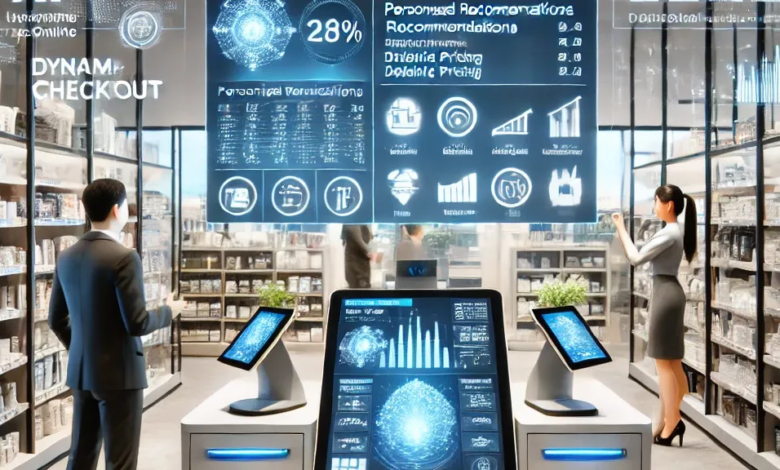The Future of Shopping: How Technology is Reshaping Retail

The retail industry is experiencing an unprecedented transformation, driven by technological innovation and changing consumer expectations. At the core of this evolution is retail software development, which has become the backbone of modern commerce. From mom-and-pop shops to global retail chains, businesses are embracing digital solutions to stay competitive and meet the demands of tech-savvy consumers.
The Evolution of Point-of-Sale Systems
From Cash Registers to Smart Terminals
Modern POS systems have evolved far beyond simple cash registers:
- Cloud Integration: Today’s POS systems sync real-time data across multiple locations, enabling better inventory management and sales tracking across entire retail networks.
- Mobile Payment Processing: Retailers can now process transactions anywhere in the store using mobile devices, reducing checkout lines and improving customer experience.
- Customer Relationship Management: Advanced POS systems track purchase history, preferences, and loyalty program data, enabling personalized marketing and service.
Inventory Management Revolution
Smart Stock Control
Modern retail software has transformed how businesses handle inventory:
- Automated Reordering: Systems that automatically generate purchase orders when stock levels reach predetermined thresholds.
- Predictive Analytics: AI-powered software that forecasts demand based on historical data, seasonal trends, and external factors.
- Real-time Tracking: RFID and IoT sensors that provide instant updates on stock levels and location.
The Rise of Omnichannel Retail
The integration of physical and digital retail channels has become essential for modern businesses. Successful retailers now offer:
- Unified Shopping Experience: Seamless transitions between online and in-store shopping experiences.
- Click-and-Collect Services: The ability to purchase online and pick up in-store, combining digital convenience with immediate availability.
- Cross-channel Inventory Visibility: Real-time stock levels visible across all platforms, from mobile apps to in-store kiosks.
Data Analytics and Customer Insights
Understanding the Modern Consumer
Advanced retail software provides unprecedented insights into customer behavior:
- Purchase Pattern Analysis: Software that tracks and analyzes buying habits across different channels and timeframes.
- Customer Segmentation: Tools that categorize customers based on behavior, preferences, and value to the business.
- Personalization Engines: Systems that deliver customized recommendations and offers based on individual customer profiles.
Security and Fraud Prevention
Protecting Business and Customer Data
Modern retail software includes sophisticated security features:
- Encryption Protocols: Advanced systems for protecting sensitive customer and transaction data.
- Fraud Detection: AI-powered systems that identify suspicious transaction patterns in real-time.
- Compliance Management: Tools to ensure adherence to data protection regulations and industry standards.
Supply Chain Optimization
Streamlining Operations
Retail software has revolutionized supply chain management through:
- Vendor Management Systems: Platforms that automate communication with suppliers and track performance metrics.
- Logistics Optimization: Software that calculates the most efficient routing and delivery schedules.
- Quality Control Tracking: Systems that monitor product quality and compliance throughout the supply chain.
The Impact of Artificial Intelligence
Smart Retail Solutions
AI is transforming retail operations in several key areas:
- Visual Search: Technology enabling customers to find products using images rather than text.
- Chatbots and Virtual Assistants: AI-powered customer service solutions that handle routine queries and provide 24/7 support.
- Dynamic Pricing: Systems that automatically adjust prices based on market conditions, competitor pricing, and demand.
Mobile Commerce Integration
The Shopping Revolution in Your Pocket
Mobile technology has become central to retail strategy:
- Mobile Apps: Custom applications that provide personalized shopping experiences and instant access to products and services.
- Mobile Payments: Integration with digital wallets and contactless payment systems.
- Location-based Services: Features that provide targeted offers and information based on customer location.
Future Trends and Innovations
The Next Wave of Retail Technology
Emerging technologies are set to further transform retail:
- Augmented Reality: Virtual try-on experiences and interactive product demonstrations.
- Voice Commerce: Integration with smart speakers and voice-activated shopping assistants.
- Blockchain Integration: Enhanced transparency in supply chain management and product authenticity verification.
Challenges and Considerations
Navigating the Digital Transformation
Retailers face several challenges in implementing new technology:
- Integration Costs: The significant investment required to implement and maintain modern retail software systems.
- Training Requirements: The need to educate staff on new technologies and processes.
- Technology Selection: The challenge of choosing the right solutions from an ever-growing array of options.
Conclusion
The future of retail lies in the intelligent application of technology to enhance both customer experience and operational efficiency. As retail software development continues to advance, businesses that embrace these innovations while maintaining focus on customer needs will be best positioned for success in the evolving retail landscape.
The integration of cutting-edge technology into retail operations isn’t just about staying current – it’s about creating sustainable competitive advantages in an increasingly digital marketplace. Successful retailers will be those who can balance technological innovation with a human touch, understanding that while software can automate and optimize operations, the fundamental goal is still to deliver value to customers.
The retail industry’s digital transformation journey is far from over. As new technologies emerge and consumer expectations continue to evolve, retailers must maintain a flexible and adaptive approach to their technology strategy. This means not only investing in current solutions but also building infrastructures that can accommodate future innovations without requiring complete system overhauls.
Small and medium-sized retailers, in particular, face both opportunities and challenges in this digital age. While they may not have the resources of larger competitors, cloud-based solutions and software-as-a-service models are making sophisticated retail technology more accessible than ever. The key is to start with foundational systems that address immediate needs while allowing for scalability as the business grows.




